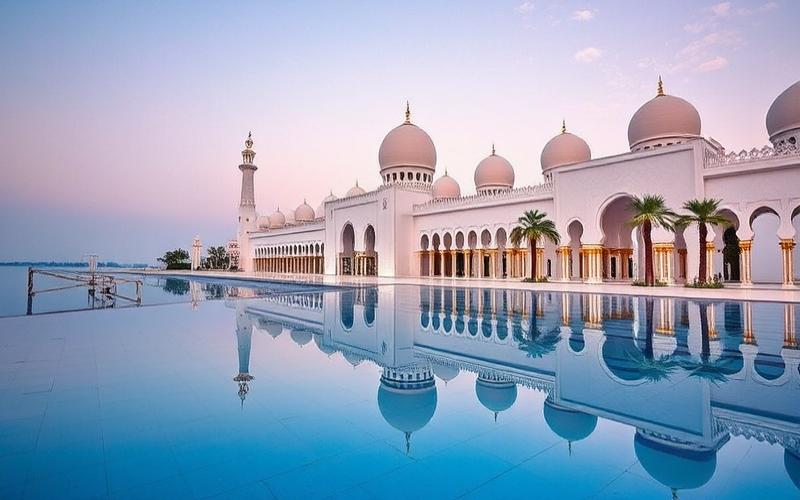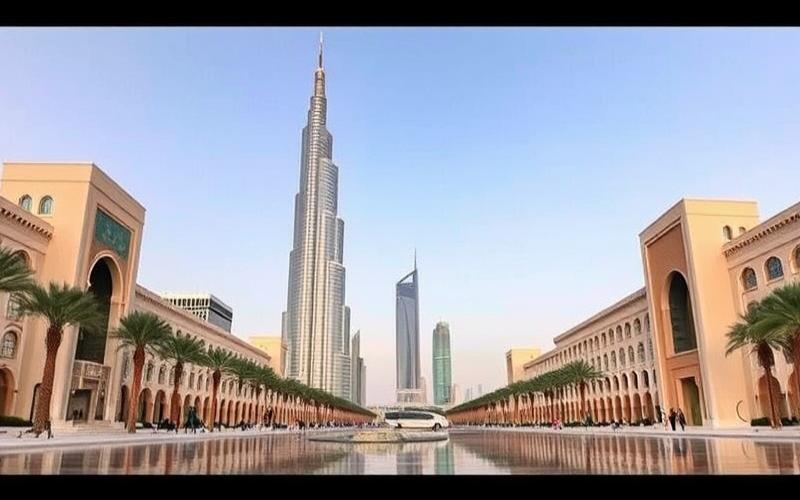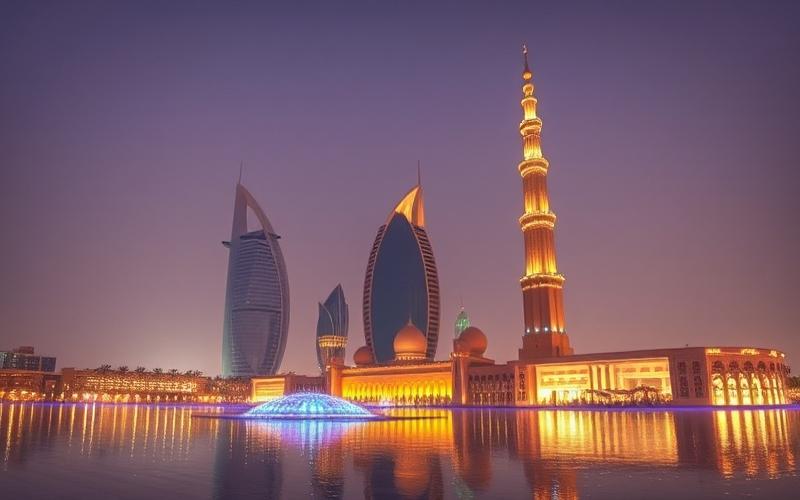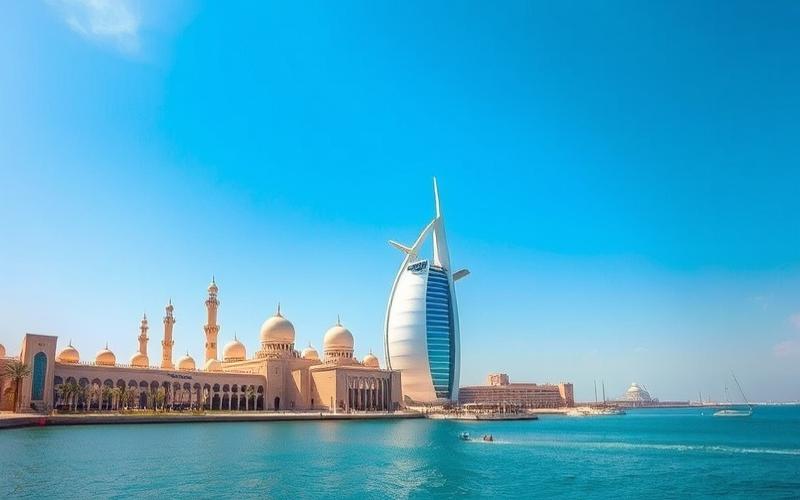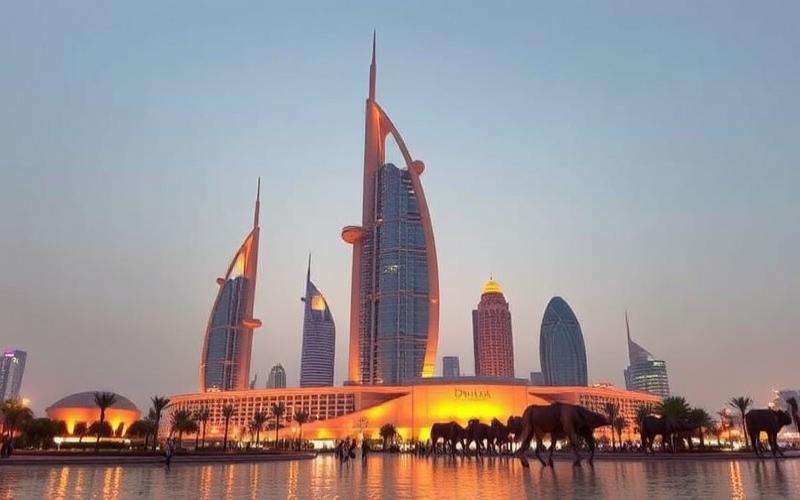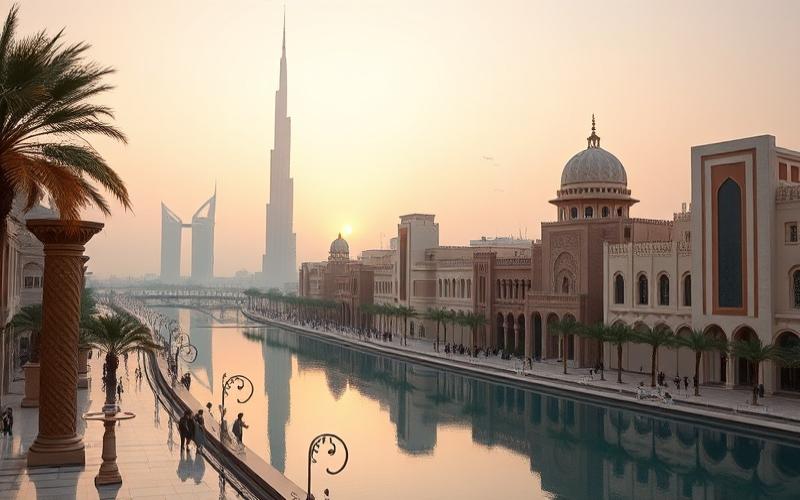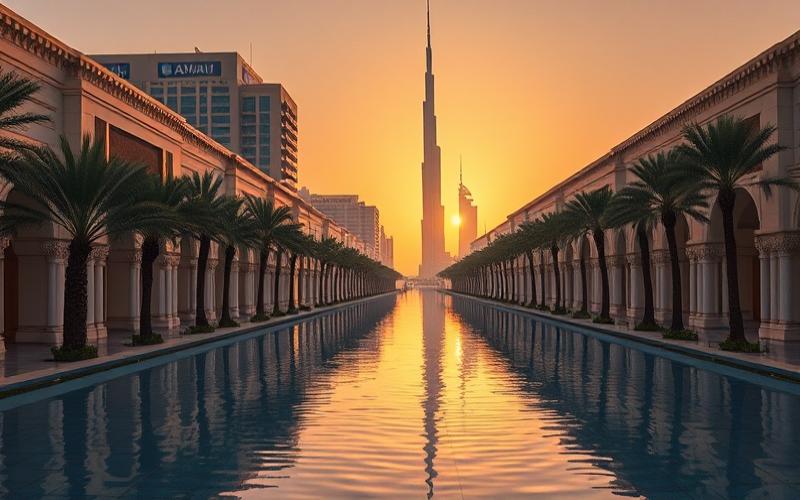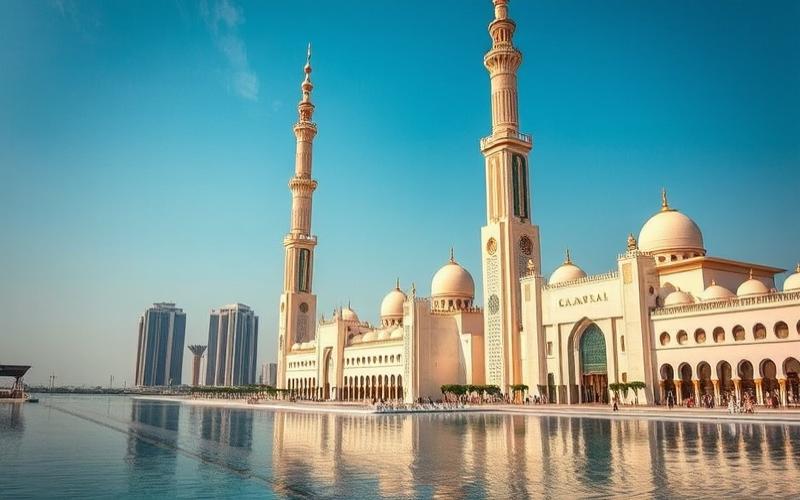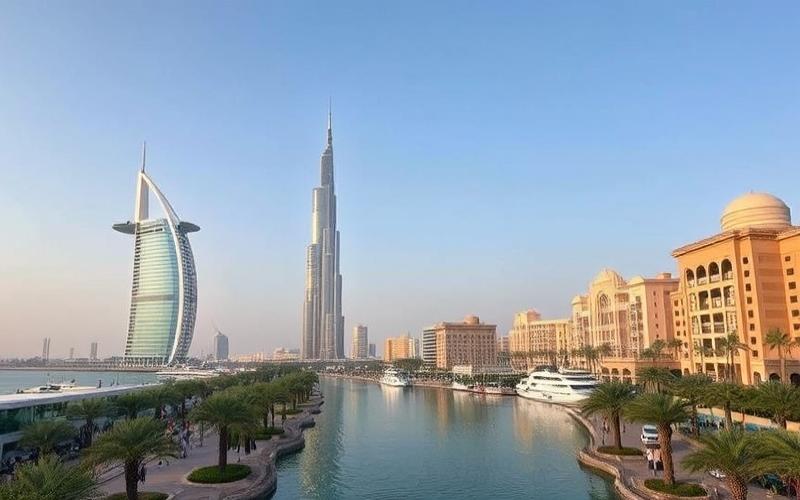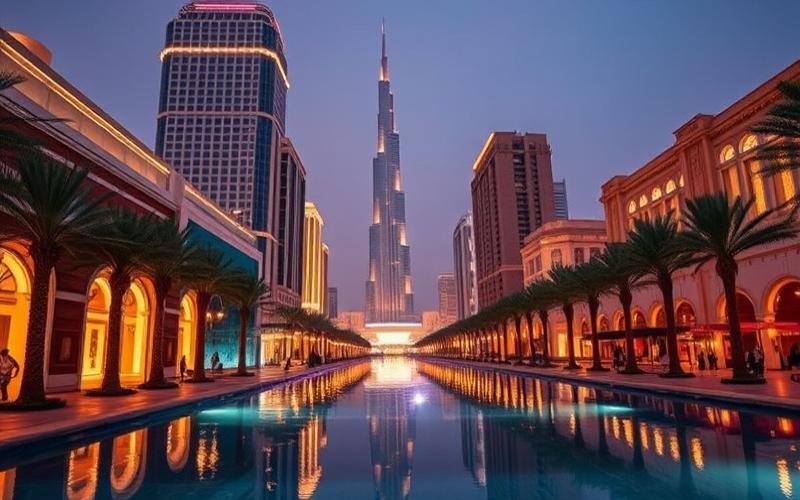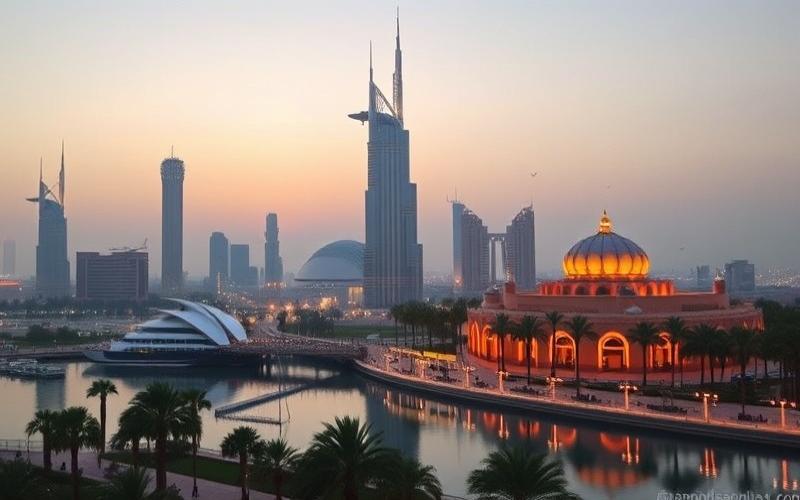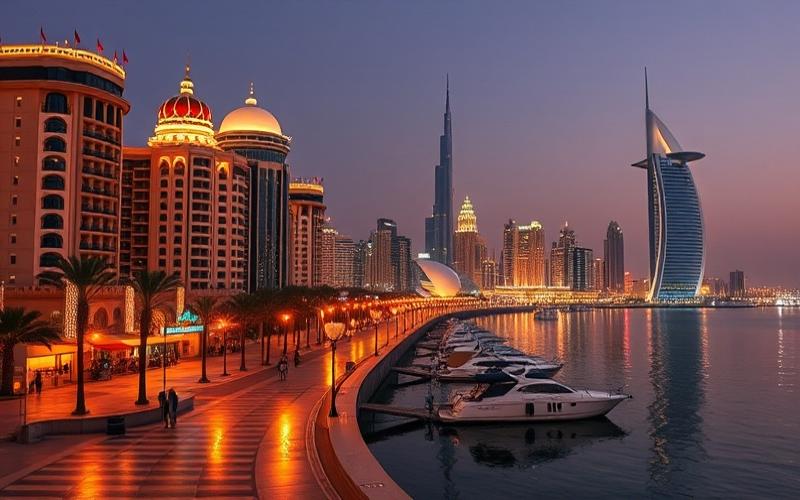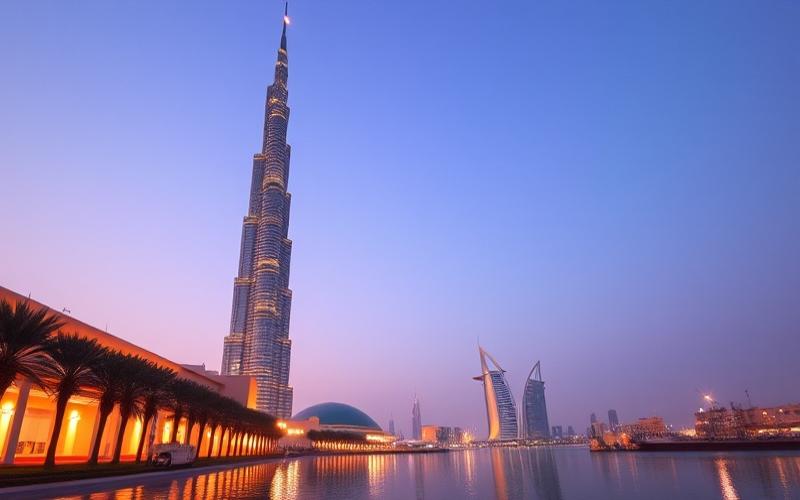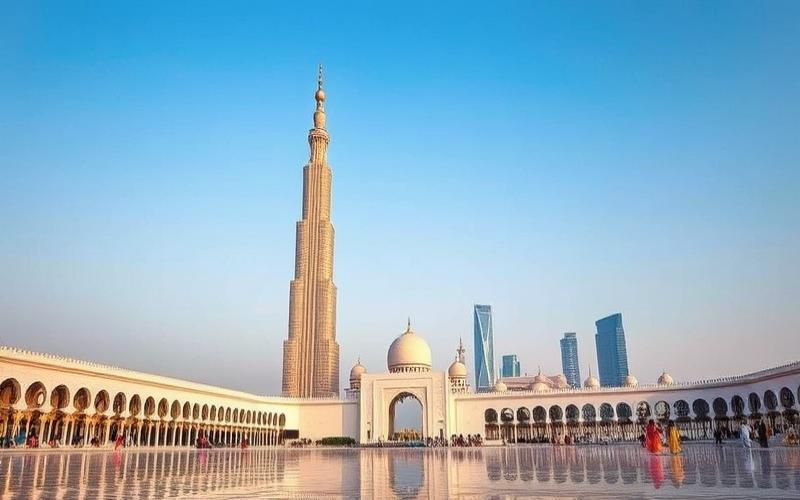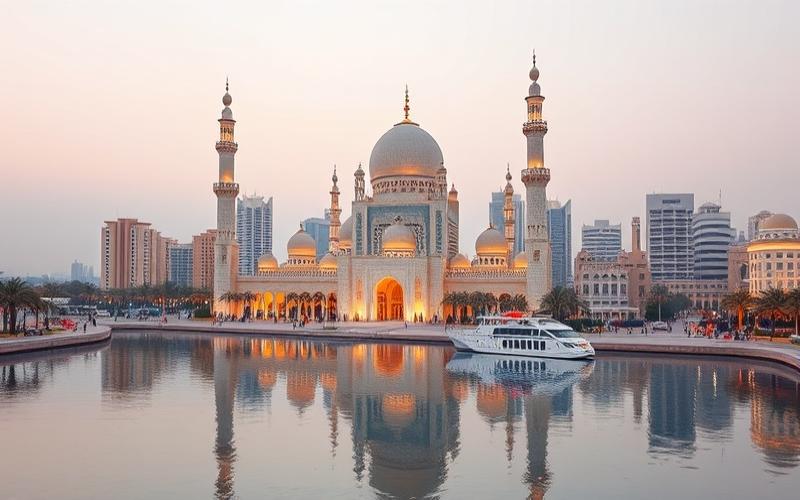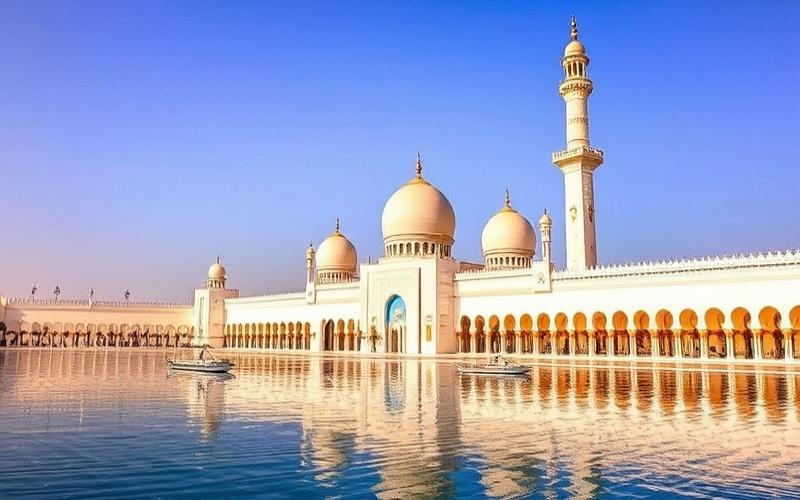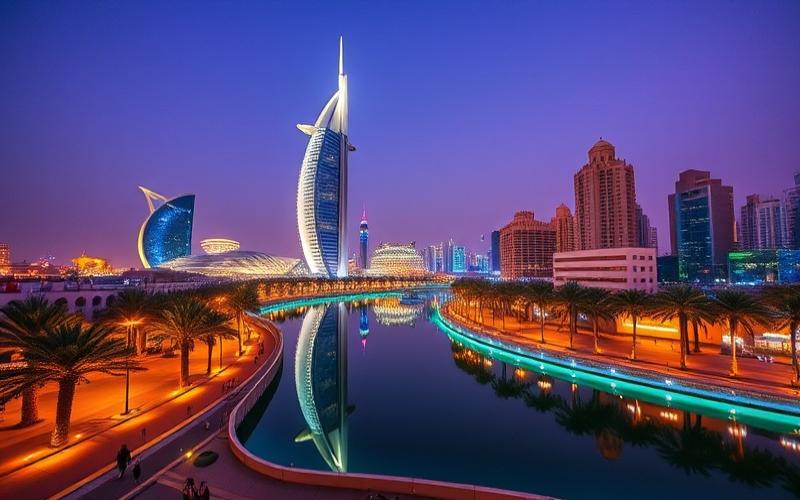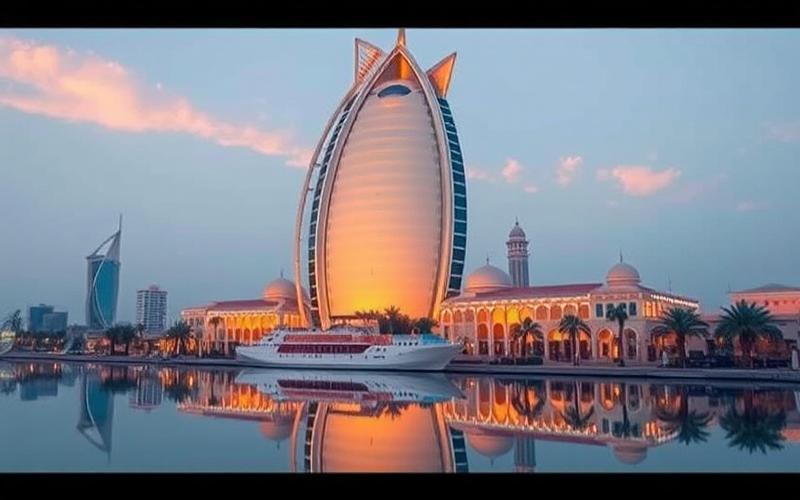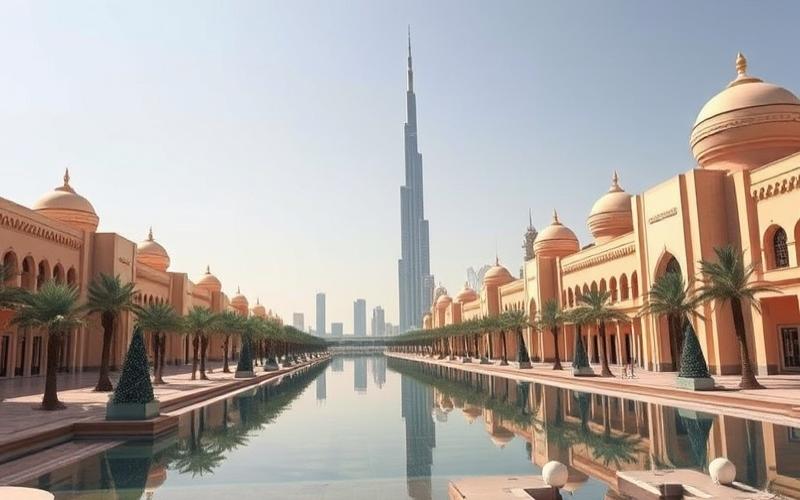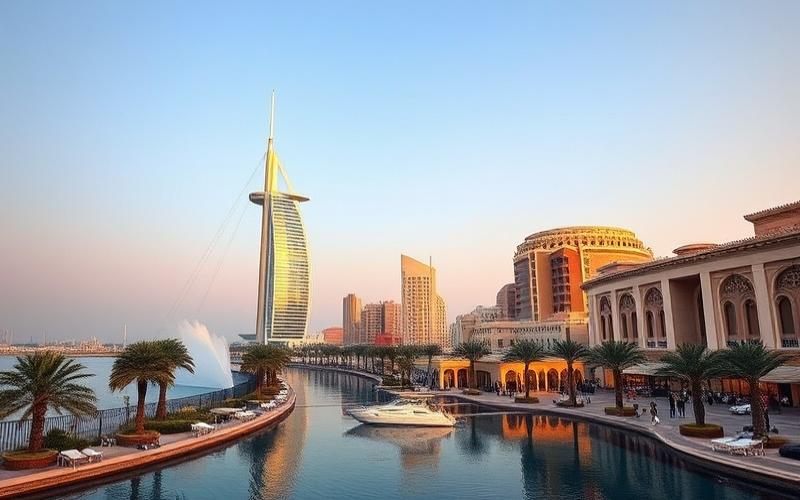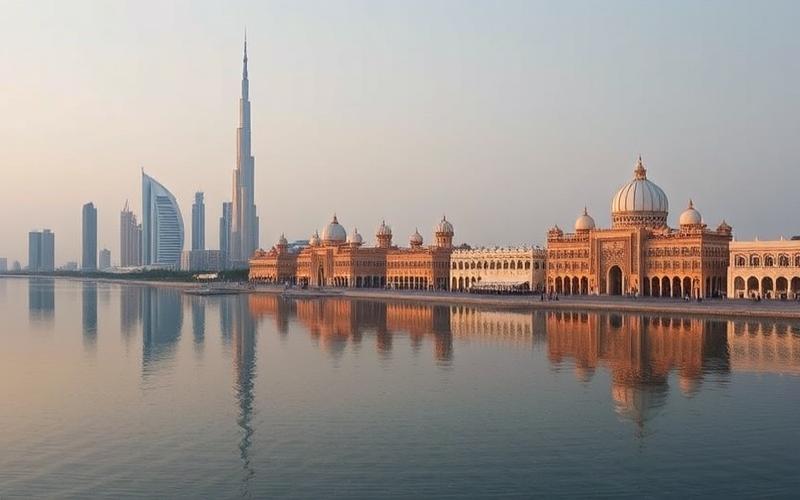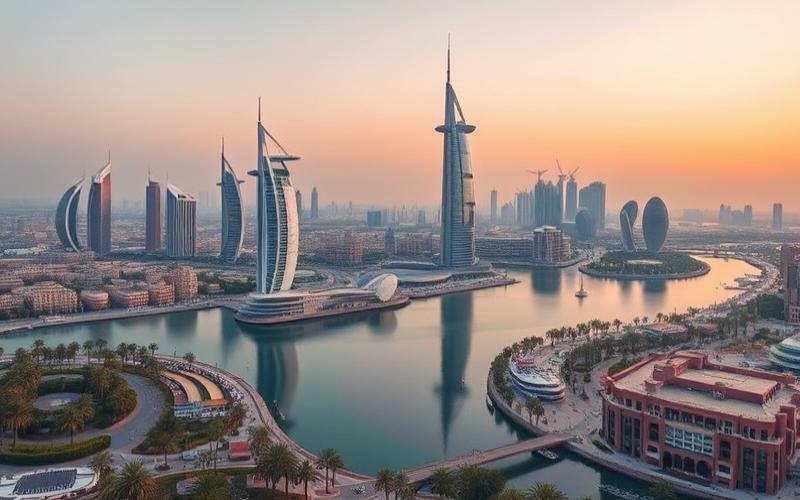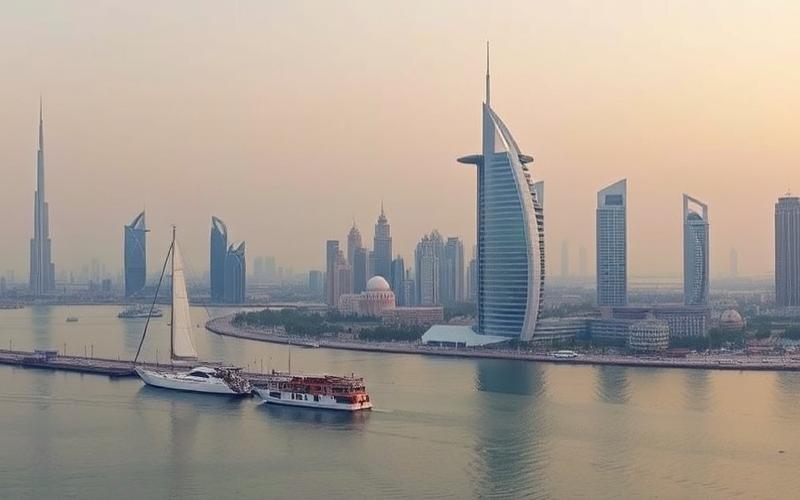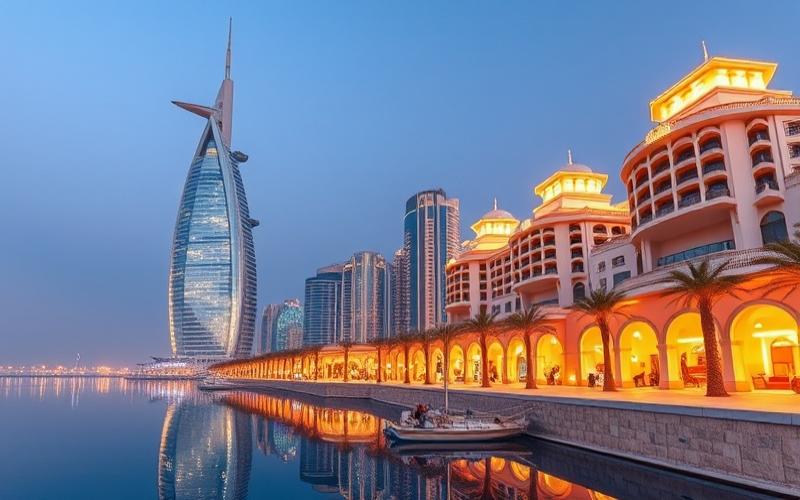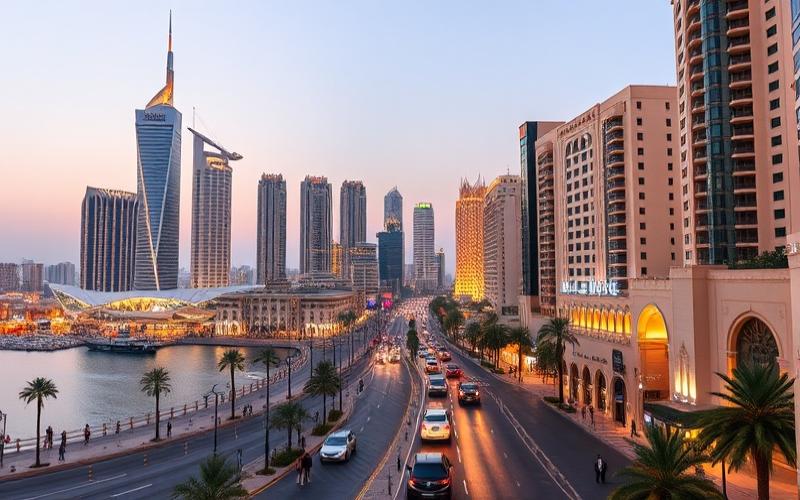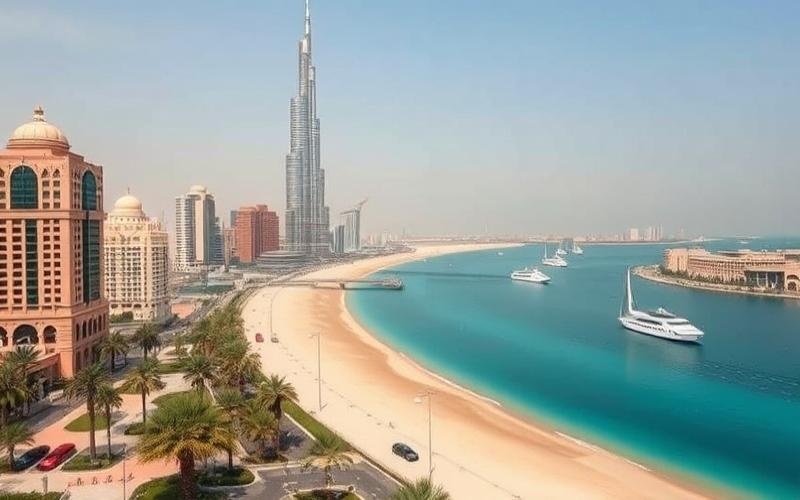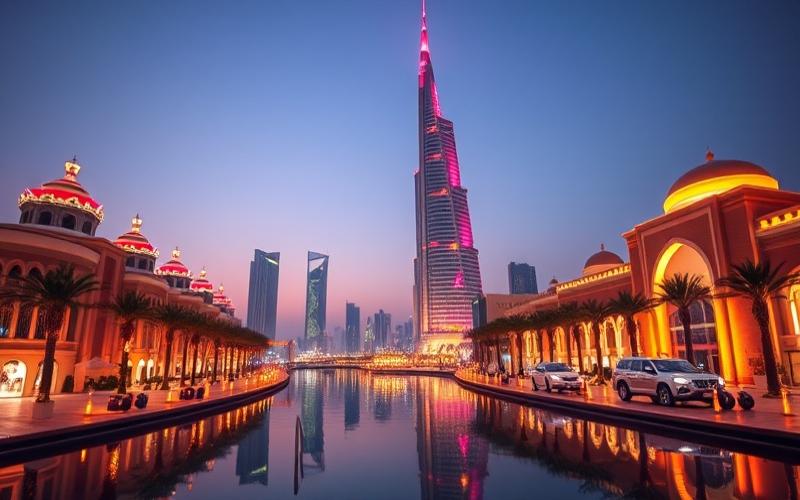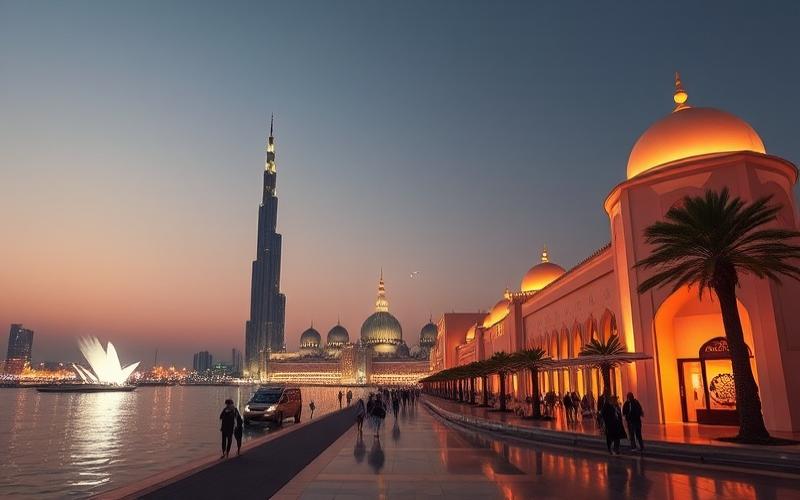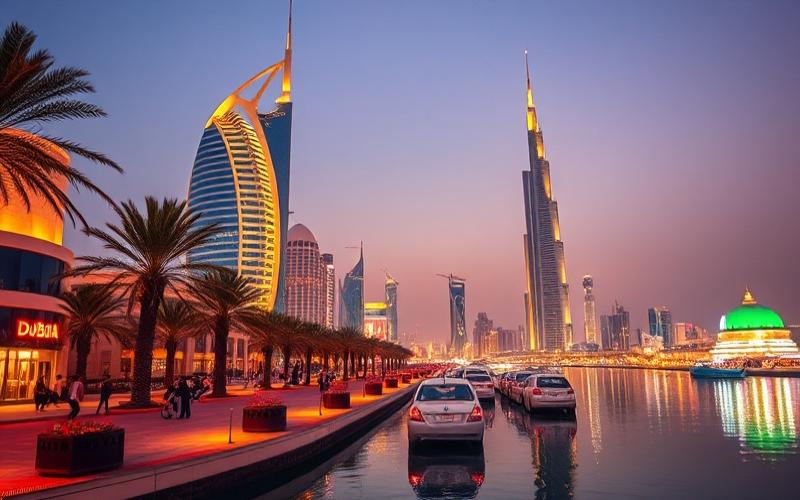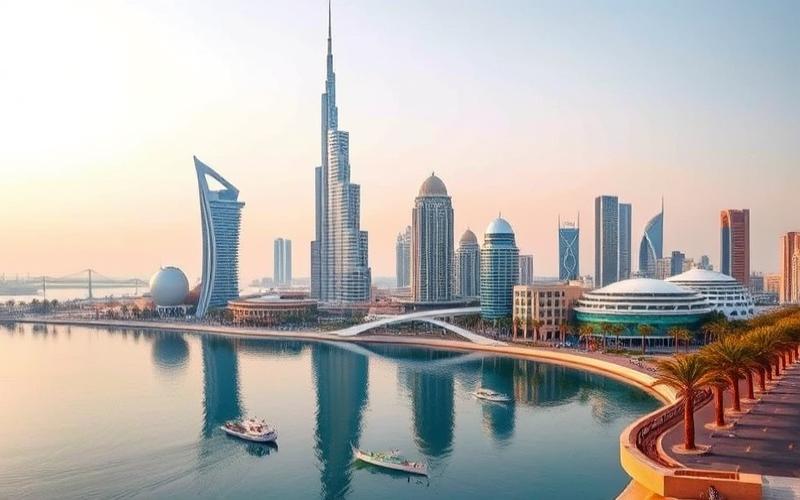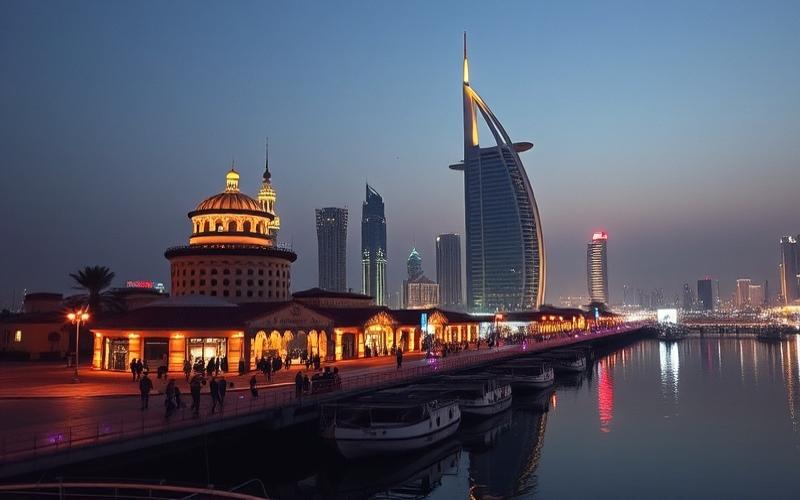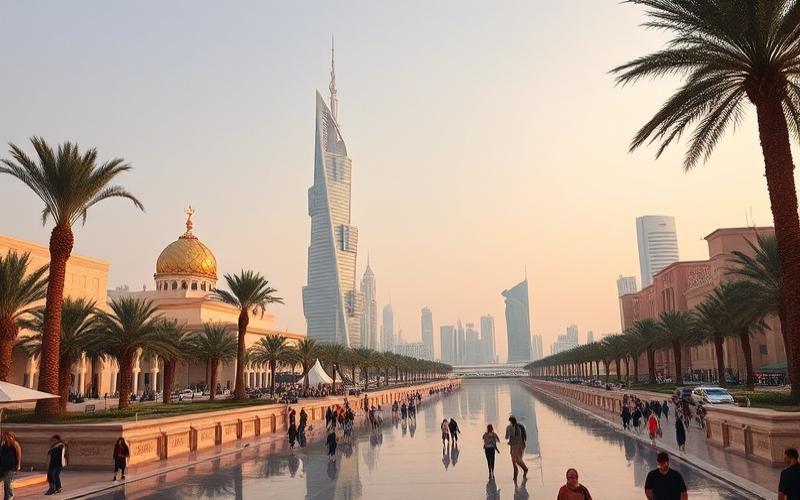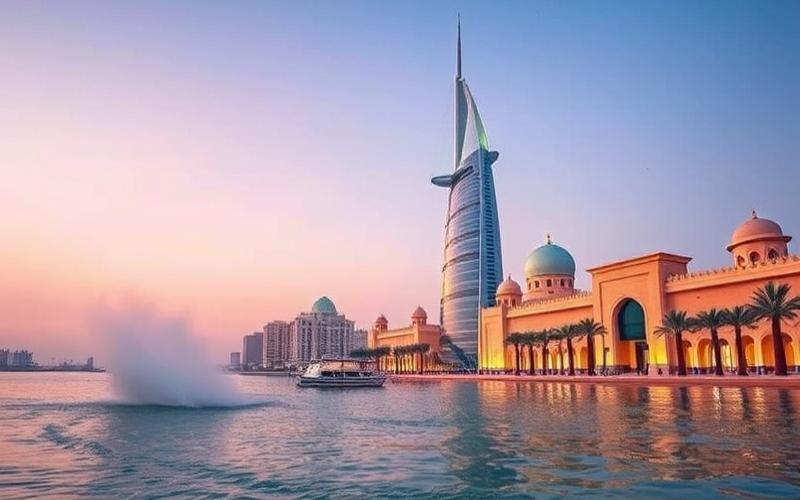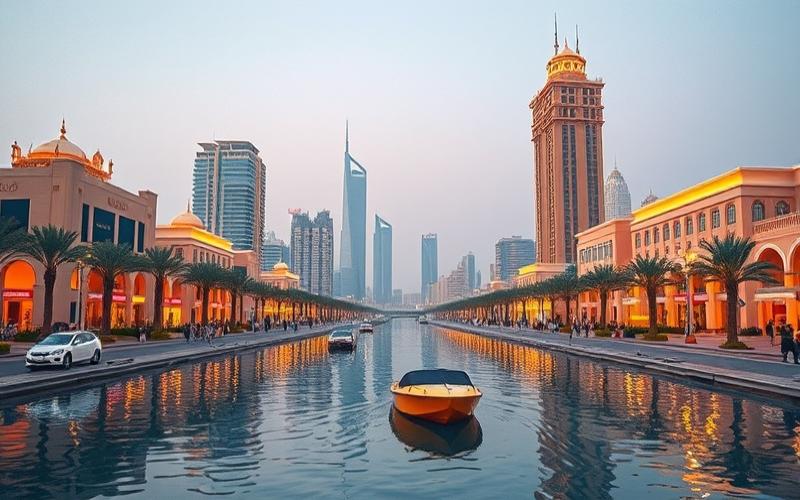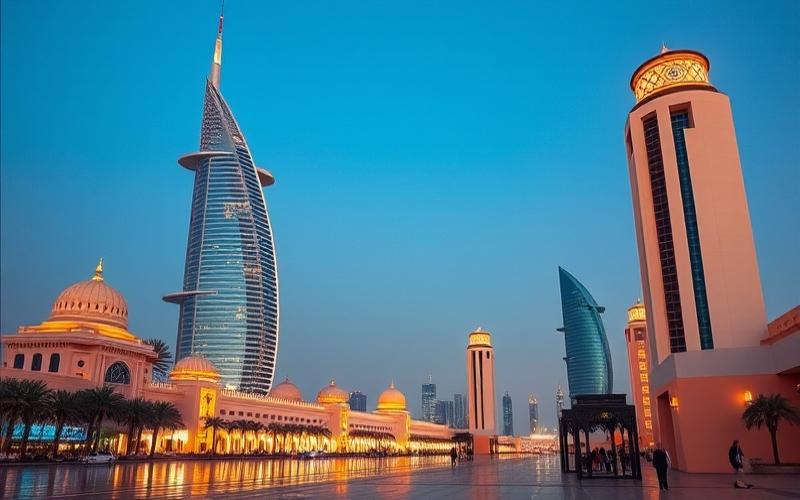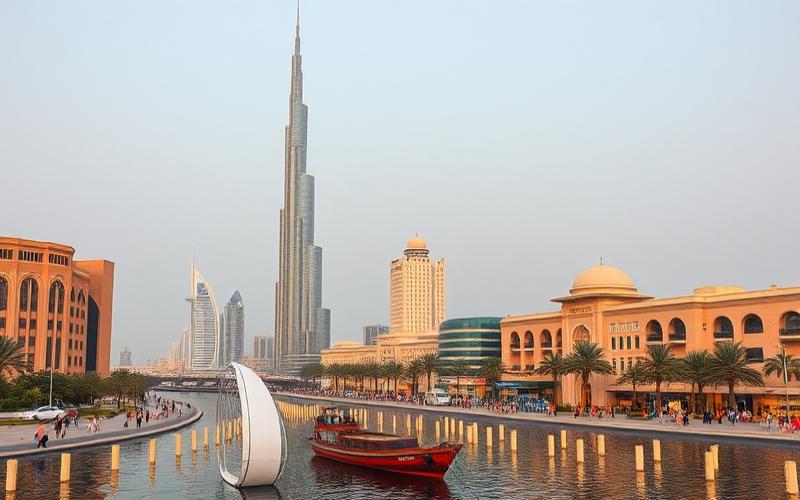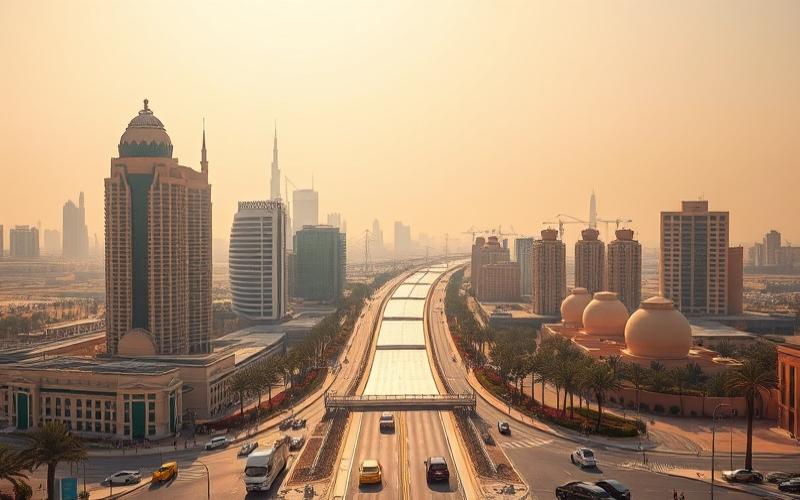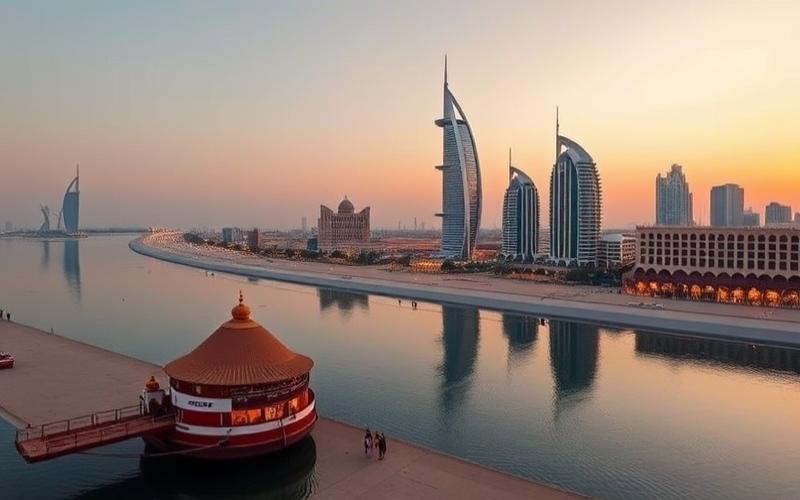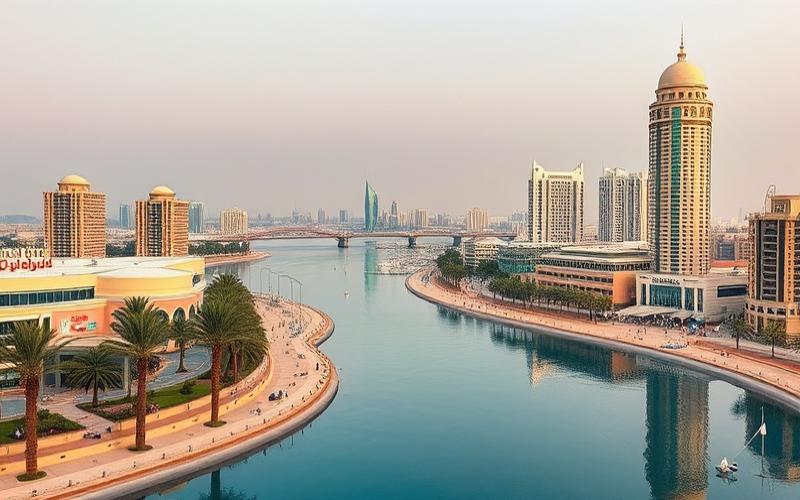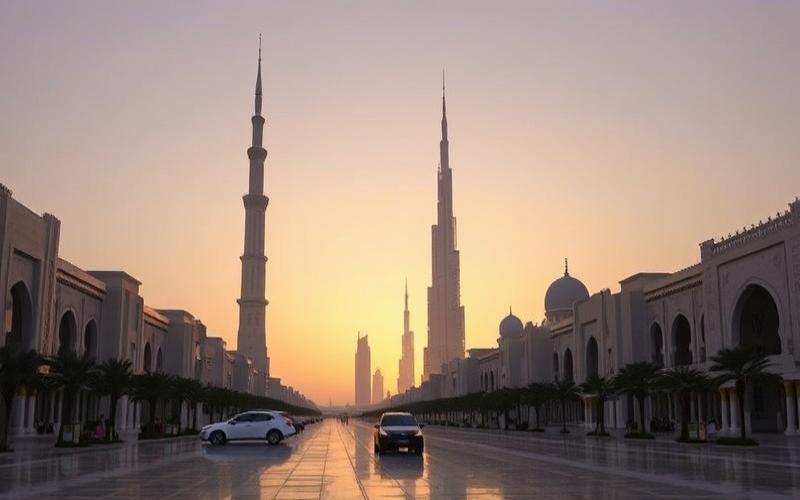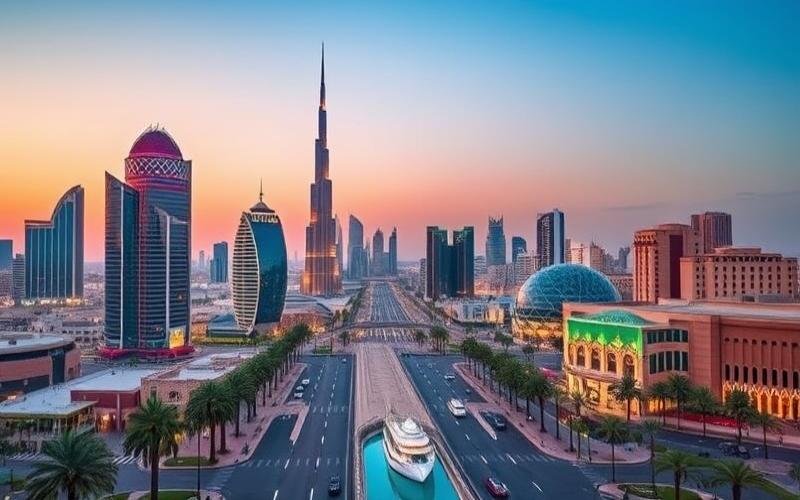
 Published on and written by Cyril Jarnias
Published on and written by Cyril Jarnias
In Dubai, a city synonymous with luxury and grandeur, a trend is emerging that intrigues and appeals to residents with more modest incomes: micro-apartments. Often perceived as unaffordable for tight budgets, this dynamic metropolis is witnessing the birth of this innovative solution, addressing a growing demand for economically viable living spaces without compromising comfort and quality. By adapting space usage to the essentials, these cleverly designed homes enable a broader audience to access urban life in the heart of Dubai, while fueling reflection on urban sustainability and resource efficiency.
Micro-Apartments in Dubai: An Expanding Niche
The rise of micro-apartments in Dubai is experiencing remarkable acceleration in early 2025, meeting a growing demand for more compact and affordable housing solutions in this luxurious metropolis. This real estate segment, once marginal, is now establishing itself as an attractive alternative for a specific clientele.
The target market for these minimalist homes primarily consists of young professionals, expatriates, and singles who prioritize location and functionality over space. These populations, often in transition or early in their careers, seek housing located near business centers and dynamic city areas, without having to bear the prohibitive costs of traditional apartments.
Recent statistics show a 27% increase in micro-apartment sales in Dubai since January 2025, with a particular concentration in the JVC (Jumeirah Village Circle) and Business Bay neighborhoods. This trend is explained by several factors:
- Financial accessibility in a generally expensive market
- Space optimization through smart designs
- Integration of advanced home automation technologies
- Reduction of ecological footprint
Among the iconic projects recently launched are:
| Project | Developer | Location | Average Area | Starting Price |
|---|---|---|---|---|
| Smart Cube | Danube Properties | JVC | 28-35 m² | 450,000 AED |
| Micro Living | Emaar | Downtown Dubai | 30-40 m² | 550,000 AED |
| The Compact | Nakheel | Dubai Marina | 25-32 m² | 420,000 AED |
Dubai’s rapid urbanization and the city’s commitment to sustainable development play a crucial role in this expansion. The “Dubai 2040 Urban Master Plan” explicitly encourages smart densification and low environmental impact construction, creating a favorable framework for micro-housing.
The Dubai government has also implemented tax incentives for developers offering affordable housing solutions, including a reduction in property registration fees from 4% to 2% for projects qualified as “innovative affordable housing.”
This trend is not unique to Dubai but is part of a global movement observable in other metropolises like Tokyo, Hong Kong, New York, and London. However, the particularity of the Dubai market lies in the high level of technology and luxury integrated into these reduced spaces, unlike other cities where minimalism is often synonymous with simplicity.
In Cyprus, a similar trend is emerging with micro-apartments offering an affordable solution in the face of rising real estate prices. These compact spaces particularly attract young professionals, students, and expatriates thanks to their modern designs and smart storage solutions, gradually transforming the local real estate market.
Good to Know:
The growing demand for micro-apartments in Dubai is driven by young professionals, expatriates, and singles seeking a minimalist lifestyle suited to small budgets. Recent statistics show a 15% increase in this market over the previous year, with flagship projects like Jumeirah Village Circle and Business Bay illustrating this trend. Rapid urbanization and sustainable development reinforce this dynamic, while tax incentives and administrative facilities encourage more investors. Comparatively, cities like Tokyo and New York are also experiencing similar growth, but Dubai stands out with its approach centered on affordable luxury and compact solutions, meeting a targeted demand.
Why Invest in a Studio in Dubai?
Investing in a studio in Dubai represents a particularly attractive opportunity in 2025, driven by strong economic fundamentals and exceptional rental yields.
The Dubai real estate market has shown an average annual appreciation of 5.7% since 2021, demonstrating stable and sustainable growth. This progression, although variable by neighborhood, offers significant capital gains potential over a 5-7 year investment horizon, the recommended period to optimize returns.
Rental Yields Above International Standards
The average rental yield in Dubai reached 6.8% in 2025, nearly double that observed in major European metropolises like Paris or Berlin. Some neighborhoods like International City or Jumeirah Village Circle (JVC) even offer yields above 8%.
| Neighborhood | Property Type | Rental Yield |
| JVC | Studio | 9% net |
| Dubai Marina | 1 Bedroom | 8% net |
| Business Bay | 2 Bedrooms | 7% net |
| International City | Studio | >8% net |
A studio in JVC can generate approximately $1,300 monthly, while a one-bedroom apartment in Dubai Marina yields an average of $1,950 per month. These performances are explained by sustained rental demand combined with acquisition prices that remain reasonable despite their increase.
Flexibility of Rental Options
- Long-term rental (12-month lease)
- Short-term rental (Airbnb type), particularly profitable in tourist areas
Significant Tax Advantages
The absence of income tax and capital gains tax makes Dubai a fiscally advantageous jurisdiction for international investors. This attractive tax policy allows investors to keep all rental income and capital gains realized upon resale.
Growing Popularity of Micro-Apartments
Studios and micro-apartments are experiencing growing demand in Dubai, driven by:
- The continuous influx of expatriates and young professionals
- The search for affordable housing solutions in a city with high living standards
- The evolution of lifestyles towards more functional and central spaces
This trend is particularly observed in neighborhoods like Business Bay, Downtown Dubai, and JVC, where developers are adapting their offerings accordingly.
Practical Considerations
For a successful investment, it is advisable to plan for:
- Acquisition fees: 4% registration fees at the Dubai Land Department
- Agency commission: typically 2% of the purchase price
- Legal fees: optional but recommended to secure the transaction
- Property management costs: between 5% and 10% of rental income depending on the type of service
Long-Term Prospects
The continuous development of infrastructure (metro extension, new neighborhoods), the organization of international events, and the economic diversification of the emirate support positive long-term prospects for the Dubai real estate market.
Good to Know:
Investing in a studio in Dubai offers numerous economic advantages, particularly due to the strong growth of the real estate market and its potential for high rental yield. With the absence of income and capital gains taxes, Dubai provides attractive tax conditions for investors. Micro-apartments are gaining popularity, especially in strategic areas like Business Bay and Dubai Marina, where rental demand remains strong due to constant infrastructure development. Studios there are often less expensive to purchase and easier to rent, perfectly aligning with global trends for budget-friendly housing. Investors like Sarah, who acquired a studio in 2018 in Downtown Dubai, have seen their property value increase by 20% in three years, demonstrating long-term capital gains opportunities. However, it is crucial to consider maintenance and property management costs to maximize profit. Property management platforms like Airsorted now facilitate short-term rentals, offering to monetize vacancy periods, thus providing flexibility suited to the needs of modern investors.
Microliving in Dubai: Optimizing Space for Better Returns
Space optimization in Dubai’s micro-apartments relies on a combination of innovative strategies and smart layouts, essential to address growing urban densification. The most common techniques include:
- Multifunctional Furniture:
- Sofa beds and Murphy beds that free up space during the day.
- Extendable or foldable tables serving as a desk, dining area, or work surface.
- Ottomans and benches with hidden compartments for discreet storage of everyday items.
- Ingenious Storage Solutions:
- Floating wall shelves utilizing full ceiling height.
- Under-bed storage or stackable modular furniture maximizing every available square centimeter.
- Floor-to-ceiling built-in closets and vertical organizers adapted for kitchens and bathrooms.
- Technology Integration:
- Home automation systems reducing the need for bulky appliances (connected lighting controllable via mobile app, smart thermostats without visible units).
- Audio-visual solutions concealed in walls to limit visual clutter.
- Smart storage allowing digital tracking of food or clothing stocks.
| Strategy | Description | Main Benefit |
|---|---|---|
| Multifunctional Furniture | Adaptive furniture with multiple uses | Instant space saving |
| Vertical Storage | Maximum utilization of walls | Floor decluttering |
| Integrated Technology | Home automation & connected solutions | Simplicity & efficiency |
| Strategic Mirrors | Studied placement to reflect light & depth | Illusion of increased space |
The effects on quality of life are tangible. Adopting minimalism encourages a decluttered environment, promoting psychological well-being and mental clarity. These layouts also offer economic advantages: fewer superfluous items mean fewer unnecessary expenses, while energy savings often result from compact and optimized equipment.
Spatial constraints profoundly influence architectural design:
- Predominance of minimalist style (“less is more”), valuing clean lines and reflective materials that amplify natural light and the feeling of openness.
- Interior architecture focused on flexibility: movable partitions, multipurpose areas adaptable to daily needs.
Challenges Encountered:
- Need for regular sorting to avoid excessive accumulation;
- Constant balance between modern comfort and material limitations;
- Sometimes high initial investment in highly adaptable or connected furniture.
Opportunities Offered by This Trend:
- Significant reduction in overall cost per square meter;
- Easier access to the urban real estate market through a varied offering of micro-housing;
- Encouragement of a more sustainable life by voluntarily limiting unnecessary possessions.
The art of microliving in Dubai transforms every square meter into a functional space where design rhymes with efficiency—thus providing an adapted response to contemporary demands while enhancing quality of life at the heart of urban dynamism.
Good to Know:
Micro-apartments in Dubai employ various space optimization strategies to offer maximum returns to residents in a dense urban setting. Among these techniques, the use of multifunctional furniture, like Murphy beds or extendable tables, frees up space when not in use. Innovative storage solutions, such as drawers integrated into stairs or wall niches, maximize every available square centimeter. Technology also plays a crucial role with home automation systems that automatically adjust lighting and temperature for a more pleasant and efficient living environment. These layouts influence architectural design by prioritizing clean lines and reflective materials to create an impression of grandeur. Although spatial constraints present challenges, they stimulate architectural and decorative creativity, while offering residents economic benefits through more affordable rents. Beyond economic practicality, this microliving approach enhances quality of life by promoting simplified organization and a less cluttered living environment.
Disclaimer: The information provided on this website is for informational purposes only and does not constitute financial, legal, or professional advice. We encourage you to consult qualified experts before making any investment, real estate, or expatriation decisions. Although we strive to maintain up-to-date and accurate information, we do not guarantee the completeness, accuracy, or timeliness of the proposed content. As investment and expatriation involve risks, we disclaim any liability for potential losses or damages arising from the use of this site. Your use of this site confirms your acceptance of these terms and your understanding of the associated risks.

